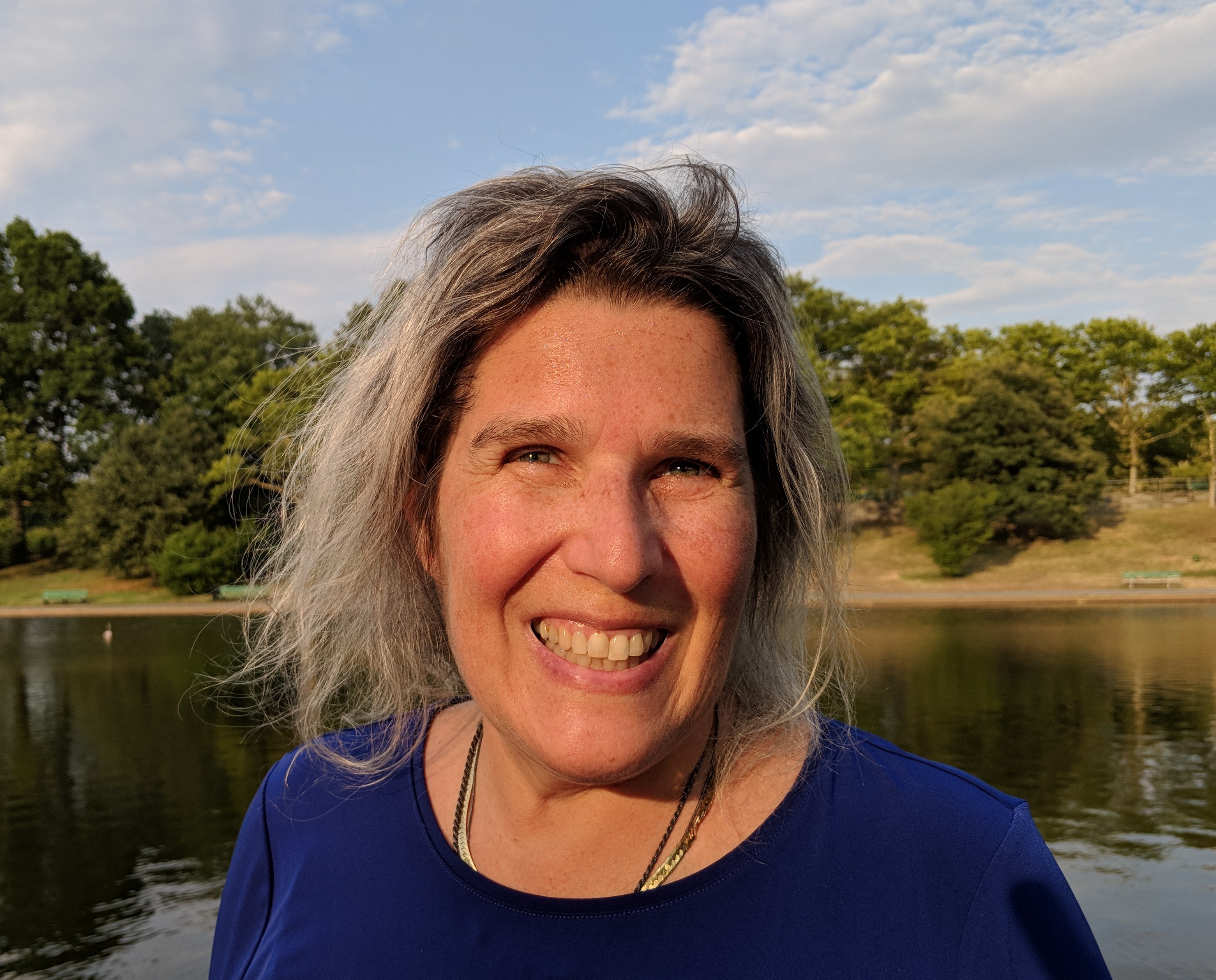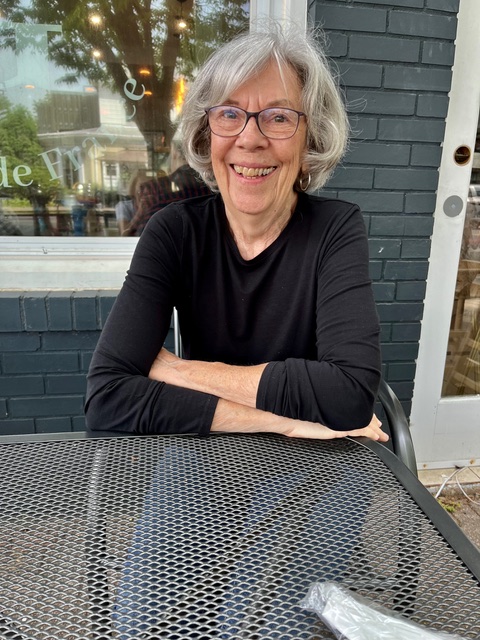Writing Difficult Stories: How Do They Do It?
June 14, 2024 § 21 Comments
By Diane Reukauf
“When we write our stories, we change the way we carry them.”
That’s what Melanie Brooks said at the end of an AWP panel she moderated a few years ago. I wrote those words in black ink on a 3×5 card that I kept on my desk while writing a collection of fragments about my granddaughter’s sudden death a decade ago, just weeks after passing her four-month checkup.
Earlier, I had read Brooks’ first book, Writing Hard Stories, based on interviews she conducted with 18 authors. She was struggling to write about a difficult period in her life and was concerned about the emotional costs of revisiting the pain. She wanted to know how other writers faced that challenge.
One author said he initially kept a safe distance from the more painful details, and the result was flat narrative. All spoke about how grappling with their experience gave shape to their stories, often a shape they hadn’t imagined. While the writing itself did not erase the suffering, it was in this shift that they discovered meaning.
I was already writing about Louisa’s death when I read Brooks’ book, but sadness and misgivings had begun to swirl and slow me down. The words from those authors encouraged me to push forward.
So, I kept writing.
And then two years later I stopped. Not because of that thing called writer’s block. It was writer’s confusion. I’d already written and rewritten over 50 pieces, but something was missing. The story had not taken on a meaningful shape. What was I failing to see?
It was a relief to step away, and I considered giving up entirely—but what I really wanted was a way forward.
I picked up Melanie Brooks’ second book, A Hard Silence, in which she recounts the story of her surgeon father’s diagnosis of HIV after receiving contaminated blood during open-heart surgery in the 1980s. Not wanting his wife and four children to suffer the consequences of HIV/AIDS stigma, Brooks’ father took on a non-surgical position and moved the family away from their hometown—determined his infection would remain a secret.
Brooks was 13 years old when her father was diagnosed. As she moved through her teen years, she needed to ask questions, to talk openly within her family, but for years the secret seemed to persist even between family members. She lived inside that silence for almost a decade before her father died.
In A Hard Silence, Brooks shares the confusion and isolation of those years. We witness her struggle to make sense of the pain that followed her well into adulthood, and we see her today as a wife and mother acutely aware of the cost of keeping a solemn secret inside a family.
Two things became clear in my second reading of this book. I noticed the way the writer told her story, not the family’s story. And I saw how it was the examination of her own pain that guided her search for meaning.
And then it struck me. I, too, had been keeping a secret—even from myself. I thought back to a time when a few writer friends read my early attempts at writing about Louisa’s death. Each asked the same question: “Where are you in this story?”
I thought the focus of my work was obvious. I was writing as an observer of events, reporting from a distance about the devastating effect my granddaughter’s death had on her family. I intended to tell their story. I hoped I might discover what this shattering loss meant so I could turn to my daughter one day and say, “Here, I’ve figured it out.”
It was a naive goal.
While my grief is attached to my daughter’s, the only story I can tell with any authority is my own. For too long I failed to examine who I was in the narrative—a woman lost, scared, and shaken by my limitations in the face of an immense loss. Before I could give shape to my story and hope to discover meaning, I’d have to examine the threads of my own grief.
I turned to other memoirs on my shelf, focusing on beginnings and endings. How did the writers do that? How did they find their way to make something new, something worthy, out of their losses and their suffering?
I have now returned to the challenge of writing this story. I write as a witness to the overwhelming impact of a baby girl’s death on her parents and her young brothers, but I also write as a mother powerless to lessen my own daughter’s pain and sorrow. I write to give meaningful shape to a devastating loss—aware that in the writing I might change the way I carry it.
—
Diane Reukauf’s essays have appeared on the Brevity Blog, WOW! Women on Writing, and in print versions of Skirt! and Parenting Magazine. She is co-author of Commonsense Breastfeeding and The Father Book: Pregnancy and Beyond. Her dissertation, The Mother’s Voice in the Progressive Era: The Reform Efforts of Kate Waller Barrett, received the Outstanding Dissertation Award at the University of Virginia’s Curry School of Education. She has conducted expressive writing sessions for international college students, female faculty members, and pediatric oncology nurses. She is currently working on a collection of pieces about grief and motherhood.
When You Write What Scares You—And Then See It in Print
July 23, 2019 § 31 Comments
 By Diane Gottlieb
By Diane Gottlieb
An essay I wrote was just published last week. It was my third publication, the first that will appear both online and in print. You’d think I’d be thrilled.
Part of me was. I had worked this shorty (432 words) for about two years, off and on. I’m proud of it. It’s tight. Honest. And it’s … personal. Very, very personal.
That’s the part that’s got me.
I’m fifty-eight years old, and while I’ve come to writing late, I’ve brought with me many rich stories. I’ve led a full life, with lots of joy and a fair amount of pain, neither of which I’ve ever been shy about sharing. Yet, seeing this particular piece, all 432 words of it, triggered me in a way I hadn’t expected. I felt naked. Exposed. I felt shame.
Why is it so hard to tell our stories? I take that back. Why is it so hard to have our stories heard?
The piece is about a time after surgery, when I spent two days in a morphine-induced haze. I had just had a hysterectomy, that I needed because I had cervical cancer, that developed because of a run-away STD, that my first husband so generously gifted me—the same STD that the woman with whom he was having an affair had shared with him. Yes. Ouch.
I’m not the first woman to have been betrayed by a husband; not the first to have had an STD, a hysterectomy, or cancer, for that matter. Not even close.
And if there’s any shame to carry in this story, it’s certainly not mine. Yet, carry it I do. I carry it like something precious, or like so many heavy stones.
Putting this story out into the world will not hurt anyone. My husband died almost fifteen years ago, and the woman he was sleeping with left both our lives a long time before that. Hurting others is not the concern. It’s the secret. Giving voice to the secret is what’s giving me pause.
There’s yet another voice from someone long gone, a haunting, steady voice that I hear. It’s my mother, herself no stranger to affairs. “Don’t air your dirty laundry,” she whispers in my ear. “Don’t air your dirty laundry for all the neighbors to see.”
Secrets. Dirty laundry. The very stuff that desperately chokes for air.
Giving voice to those secrets takes away their power. Am I afraid to stand in that light, to take on that power and claim it as my own?
Maybe.
Telling stories and having them heard can indeed be terrifying. And yet, it is the scariest stories that most need to be told. The more of those stories heard around the world, the less others will feel alone. I get that … And still.
We’ve all been told to write what scares us. But long held secrets, or whatever it is that scares you most, can do damage, when exposed. Those secrets are frightened animals with sharp claws and sharper teeth. Tread carefully—and be gentle—with yourself. Write slowly. Walk. Breathe. And put down the pen before your mind or your body go into overwhelm.
The story that was published last week is an old story. I’ve had plenty of time and distance from the events, yet seeing them all in print still packed a mighty punch. It took me two years to write 432 words. We must remember that writing is not a race.
Continue to write those secrets. Write what you fear. I certainly will. But write consciously and with care. And when you’re ready, only when you’re ready, submit.
__
Diane Gottlieb received an MFA from Antioch University Los Angeles where she served as lead editor of creative nonfiction and as a member of the interview and blog teams for Lunch Ticket. Her work has appeared in Burningword Literary Journal, Panoply, and Lunch Ticket. You can also find her weekly musings at https://dianegottlieb.com. @DianeGotAuthor

